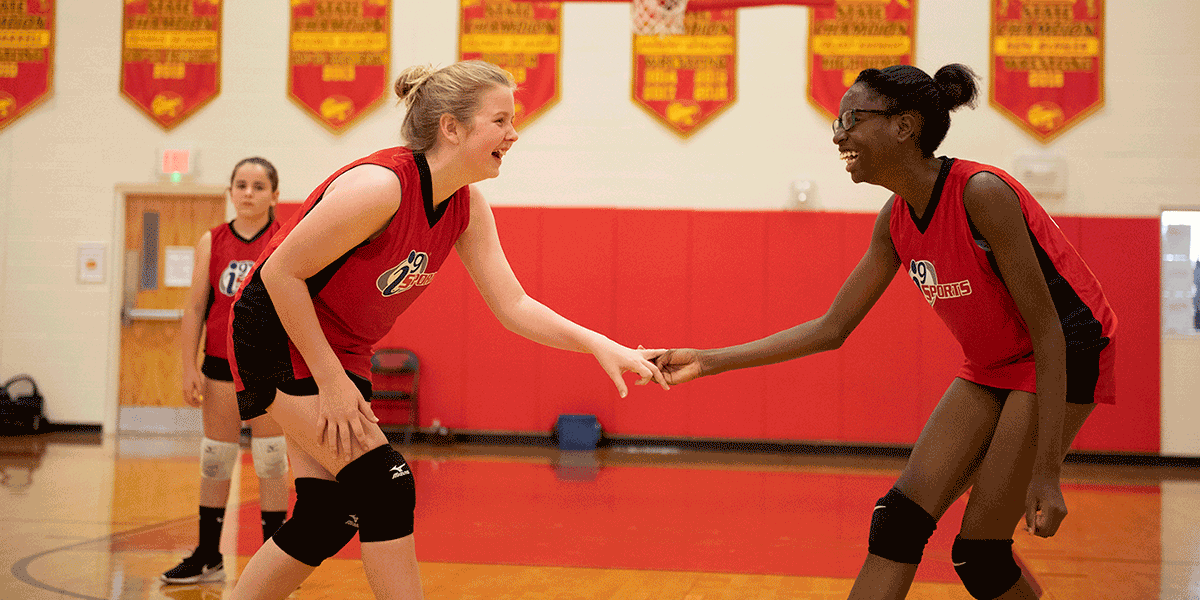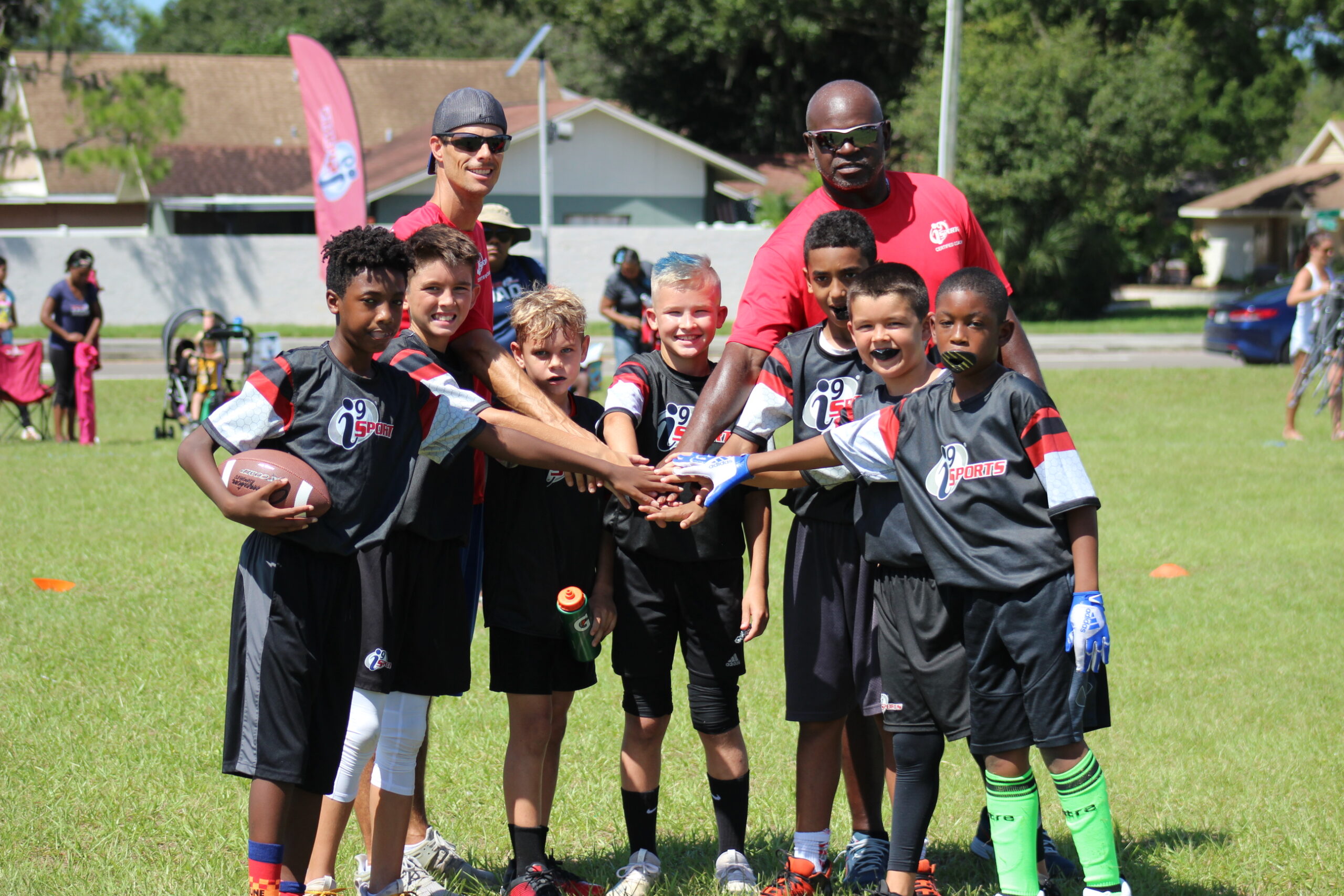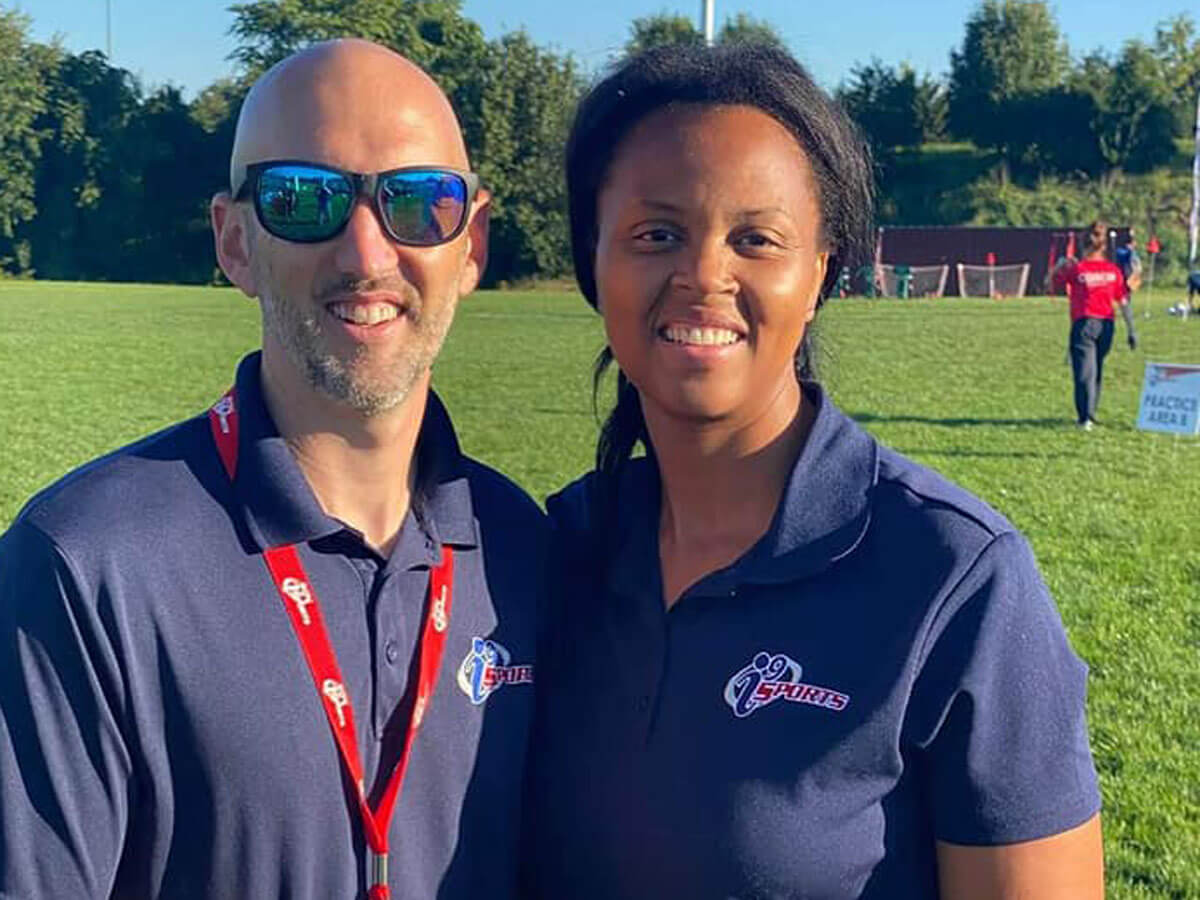Many girls start dropping out of sports around age 12
The mission of i9 Sports® is to make sports fun for kids, with a focus on age-appropriate instruction and healthy competition. However, recent studies and surveys show a concerning trend. Many girls quit playing when they reach puberty.
By the age of 14, girls are dropping out of sports at twice the rate of boys, reports the Women’s Sports Foundation. According to a survey, only one-third of girls believe that society encourages girls to play sports.
We can help change this in our communities by talking to parents. Many parents understand the importance of sports in the lives of young people. That’s what attracted Gene and Patty Gentrup, who own i9 locations in Kansas City, to start their business.
“We saw what sports did for our daughters,” Gene says. “Why wouldn’t we want to pay that forward?”
You might even take it a step further in your community, like Pegah Jimenez has in Georgia
Girls-only leagues
Pegah, along with her husband Carlos, has been an i9 Sports owner in Forsyth/North Fulton, Georgia, since 2006. Pegah offers girls-only leagues in flag football and basketball and will launch a girls-only soccer league in fall 2024.
“We started our i9 Sports business with co-ed teams only. But we saw a need in our community for more flag football leagues, so we let girls-only flag football teams begin to play with us. Now we’re starting feeder teams in middle school,” Pegah says.
The girls-only leagues have female coaches who also coach coed teams.
The challenge of keeping girls in sports
According to the Women’s Sports Foundation, girls begin dropping out of sports around age 12. Pegah says a combination of factors leads girls to stop playing. Those factors include where they live (a rural area versus a suburban area); whether the sport they play has become too competitive for them, and what sports are offered for girls.
“Once girls get to middle school, their options for what sports are available really dwindle,” Pegah says.
“We’re trying to create an environment for our girl athletes — and their male counterparts — to not only feel safe but also to continue to build relationships with peers and coaches.”
She says that the fundamentals kids learn in sports also apply off the field. She’s seen it with her own daughters, Ava, 13, and Jordana, 22.
Addressing the coach gap
In addition to the reasons Pegah mentioned, some girls drop out because they feel vulnerable and objectified when playing and because of discomfort with the physical changes of puberty (Women in Sport).
Girls often feel uncomfortable discussing these issues with male coaches. If there are no female coaches or staff members to talk to, girls may drop out rather than raising these concerns.
CNBC reports that Nike CEO John Donahoe recently emphasized the importance of female role models in coaching, noting the company’s initiative to train 20,000 women to become coaches.
Our resources
i9 Sports provides resources to help volunteers become effective coaches — even when they have limited backgrounds in a particular sport. Weekly practice plays, rulebooks, drills, and coaching tips are all available through our mobile app.
These resources give your coaches confidence, and as they become more skilled, the app’s custom features allow them to create their own plays and instructional notes.
What really counts in coaching is a dedication to sportsmanship, leadership, and attitude toward the importance of fun and participation.
The benefits of sports
Aside from the obvious benefit of physical activity, playing sports helps girls later in their adult lives. According to Deloitte’s August 2023 survey, girls who play sports are more likely to be successful in their careers:
- Eighty-five percent of surveyed women who played sports say the skills they developed playing sports were important to success in their professional careers.
- Those findings are even higher among women in leadership roles (91%) and women who make $100,000 or more (93%).
- According to respondents who have played competitive sports, the top skills gained from competitive sports include teamwork (69%) and leadership (41%). Other skills include managing stress and pressure (36%), problem solving (35%), and effective communication (34%).
Become part of our team
i9 Sports® is dedicated to creating a positive and inclusive environment for all young athletes to thrive in sports and life. Join us in our mission to empower the next generation of leaders. Start by downloading our free ebook.




